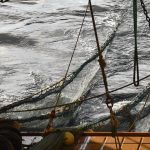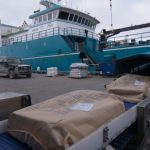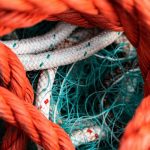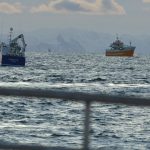This falling of prices of cod is a sure sign that the economic chaos on Wall Street has trickled down to the docks. The global credit crunch is stalling or stopping seafood commerce, and cod is piling up in local freezers. John Whiddon, manager at Island Seafoods, said that there is just so much uncertainty in the market. The seafood industry depends upon a long chain of buying and selling to carry out its business.
Gunnar Knapp, fisheries economist at the University of Alaska/Anchorage, informed that processors buy from fishermen, who then sell to wholesalers who sell to retailers and so on. When things are working normally, a line of credit is a standard part of the business. Knapp also told that in this situation businesses are finding it a lot harder to borrow money on credit, partly because the businesses who lend out the money are experiencing difficulties.
According to Knapp this is a global economic crisis and many of Alaska’s competitors may have the same or worse credit and market problems. To the extent they are unable to supply markets, this could benefit the Alaska industry. It is told that the global recession could reduce demand for higher priced seafoods and boost interest in less pricey products. Fishermen should also get a break from high fuel prices over the next few months.
According to Knapp business is a bit slower in the halibut IFQ market, and blames the recession for the stall in trading. Still, quota shares of halibut have trended upward in value in the last few years, holding steady at $25-$30 per pound in prime Alaska fishing regions. Experts said that people are still fishing and making transactions and making plans for next year, lots of stuff is going on now.








